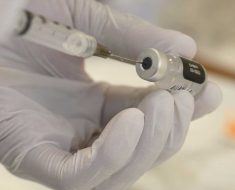Mental Floss reported earlier this week that a new UK-based study shows that drinking up to eight cups of coffee per day can lower someone’s risk of death.
British researchers analyzed “data from the UK Biobank pertaining to the lifestyle choices, demographics, and genetic information of 500,000 people.” Out of the 500,000 participants, 87 percent were avid coffee drinkers. Over the course of the study, from 2006 to 2010, around 14,000 participants died, and “an inverse relationship between coffee drinking and the risk of death was recorded.”
The author of the study, Dr. Erikka Loftfield, commented, “How well caffeine is metabolized varies considerably from person to person.”
Loftfield, who works at the Division of Cancer Epidemiology and Genetics at the National Cancer Institute, added that, “A few studies have suggested that coffee drinkers with polymorphisms indicating slower caffeine metabolism may be at increased risk of adverse health outcomes. The U.K. Biobank, a very large cohort study with data on coffee intake, other lifestyle factors, and genetics, allowed us to address this question for the first time.”
While the findings of this study were published in JAMA Internal Medicine, scientists claim that there is still more research needed to be done to “determine the link between coffee and other health outcomes.”
Last year, the European Society of Cardiology published a study suggesting that people who regularly drink up to four cups of coffee per day are 64 percent less likely to die “early” than those who rarely drink coffee. The study also claimed that, for every extra two cups of coffee a day, the odds of a person’s lifespan could increase by 22 percent.

According to a University of Southampton public health specialist, Robin Poole, however, these findings do not mean that everyone should start drinking coffee. Poole noted that the study could potentially be inaccurate due to unmeasured variables connecting a person’s extended lifespan with coffee consumption. Poole told Newsweek, “We know that some people metabolize caffeine quite slowly and are less tolerant of the apparent physical affects of caffeine, which of course comes from many sources other than coffee.”
“Such people,” Poole continued, “would be better to avoid too much coffee, or move toward decaffeinated choices, [which] this study has shown still have beneficial associations.”
The results of the JAMA Internal Medicine study, however, coincide with the coffee consumption recommendations of the U.S. Dietary Guidelines Advisory Committee, which claims that drinking anywhere between 3 to 5 cups per day will not negatively affect the health of otherwise healthy individuals.
Source: Read Full Article





